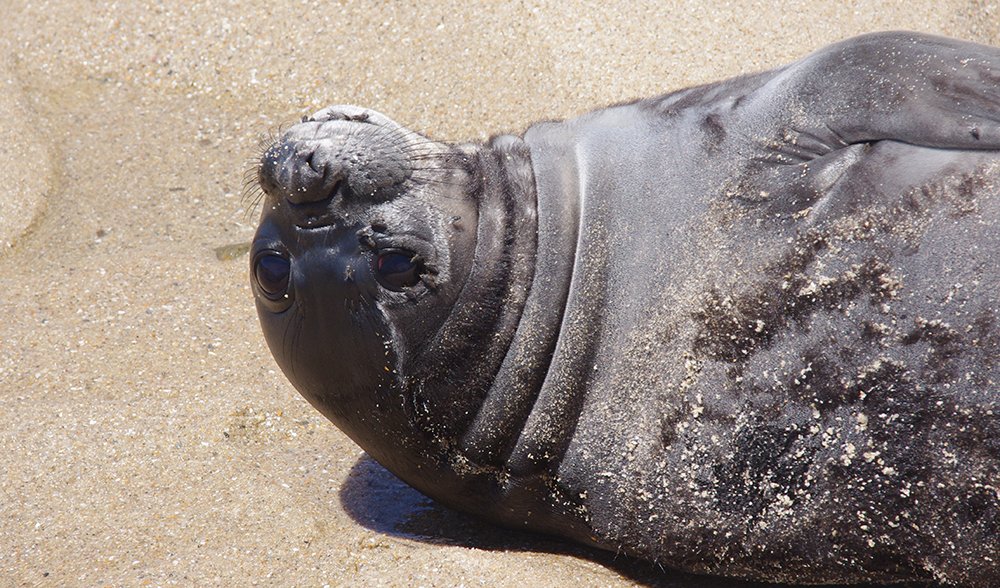First elephant seal born on King Island in 200 years

AN ELEPHANT SEAL has been born on King Island for the first time in over 200 years.
King Island, off the north-western tip of Tasmania, used to be home to a thriving southern elephant seal population, but sealers decimated the colony in the 1800s when they hunted the seals for oil.
The male pup was first spotted at Naracoopa on the island’s east coast, sporting the tell-tale woolly black coat that elephant seals wear for their first months of life.
Shelley Graham, senior ranger at the King Island Field Centre, said the coat was proof the seal was born on King Island.
“It’s born with a woolly black coat and it starts to shed that coat at about two months of age. It doesn’t go into the ocean and start swimming until it loses that coat,” she said.
Elephant seal travelled thousands of kilometres
With his coat now starting to disappear, the pup has spent the last few weeks doing ‘test runs’ up and down the King Island coastline, and Shelley said he’ll probably head out to sea soon.
Southern elephant seals spend most of their life at sea, diving down hundreds of metres in search of food. They can also swim for thousands of kilometres, and Haley believes the male pup’s mother probably came from Macquarie Island, which lies about halfway between Tasmania and Antarctica, in the Pacific Ocean.
“Macquarie Island is the closest breeding colony to here and it’s a large breeding colony,” said Shelley.

The patches of fur on this young elephant seal born on King Island are remnants of the dark woolly coat he was born with. When the fur moults he’ll be ready to leave King Island for a life in the ocean. (Image: Shelley Graham).
Renewed hope for King Island elephant seal population
The pup’s presence alone does not signal the beginning of the return of elephant seals to King Island, but Shelley says it gives her hope.
“It could just be a random thing, or it could be significant because it’s the first of many that may be born again here in the future,” she said.
In case he does come back to breed, or even just for a visit, researchers have taken a small sample of the pup’s DNA so they can identify him.
Today, southern elephant seals are protected by law in Australian waters and are listed as a vulnerable species. However, the population on Macquarie Island has continued to decrease over the past 50 years, thought to be a result of reduced access to foraging grounds.
RELATED CONTENT




